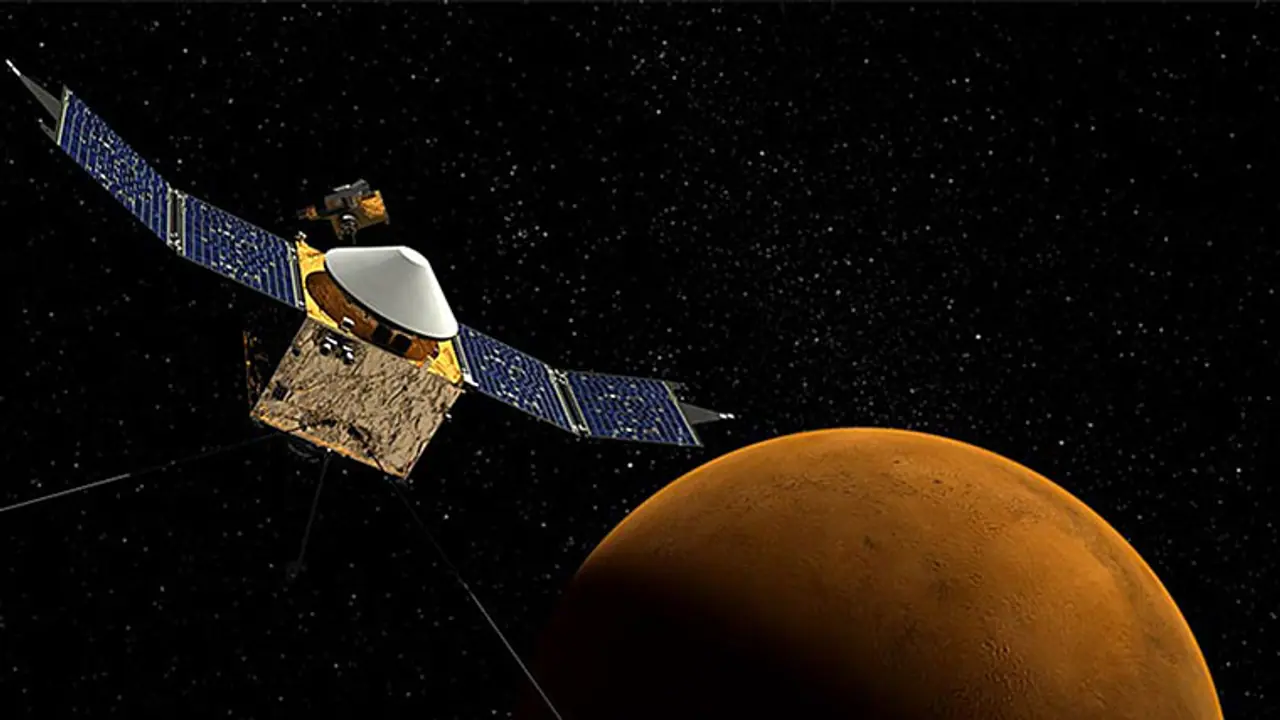India's Mars Orbiter craft has run out of propellant and its battery drained beyond the safe limit, fuelling speculation that the country's maiden interplanetary mission 'Mangalyaan' may have finally completed its long innings. The Mars orbiter craft functioned for almost eight years, well beyond its designed mission life of six months.
Mangalyaan, India's first Mars mission, has finished its trip more than a decade after it was launched. According to reports, the Mars Orbiter Mission (MOM) has run out of fuel, making it impossible to restart in the Red Planet's orbit. This development fuels suspicion that the mission has been completed. The Indian Space Research Organisation (ISRO), which operates the spacecraft around Mars, is yet to say anything on the matter of whether the probe can be revived or not.

Sources told news agency PTI that there is no fuel left in Mangalyaan. "Right now, there is no fuel left. The satellite battery has drained," sources in the Indian Space Research Organisation (ISRO) told PTI, adding that the link has been lost.
"Recently, there were back-to-back eclipses, one of which lasted seven and a half hours. Because the satellite battery is only meant to last roughly one hour and forty minutes, a lengthier eclipse will deplete the battery beyond the safe limit," PTI stated, citing anonymous sources.
Also Read | DART mission step towards preparing world for potential future asteroid strike: Indian scientists
The project had already outperformed expectations, having been operating for more than eight years despite being built for a six-month mission in Martian orbit.
Mangalyaan was launched in 2013 atop PSLV-C25 as India's first interplanetary mission, making Isro the world's fourth space agency to launch a mission beyond Earth's orbit. The spacecraft was part of a demonstration mission to prove that India could design, launch, and operate a mission on another planet.
The Indian Mars mission was one of the most cost-effective interplanetary missions ever devised, costing around Rs 450 crore. The spacecraft was equipped with five instruments to study the Martian surface features, morphology, mineralogy and the Martian atmosphere.
Also Read | Russia, United States, China among the biggest contributors to waste in space: Study
India has been planning to launch another mission to Mars in the coming years, which is also likely to be an Orbiter. Former ISRO chief K Sivan, during his tenure in 2021, said Mangalyaan-2 will be undertaken only after the launch of Chandrayaan-3, India's upcoming Moon mission.
